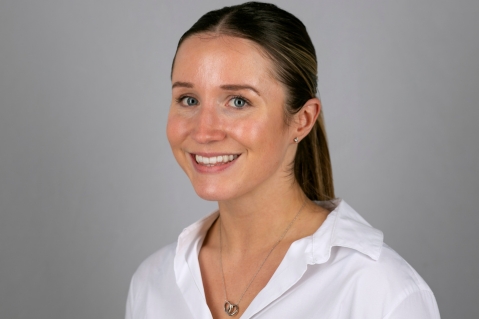 Millie Graham reflects on her experience of the Genomic Medicine MSc and how the opportunities available have enriched her studies.
Millie Graham reflects on her experience of the Genomic Medicine MSc and how the opportunities available have enriched her studies.
"Immersing myself in a new culture in a completely different city and climate, while getting hands-on lab experience and deeper insights into lab dynamics, was both a privilege and an invaluable experience."
Please tell us about your academic and professional background
I graduated from Loughborough University with a BSc (Hons) in Human Biology, where my interest in genomics was sparked through various modules. This curiosity ultimately led me to pursue this course, providing an opportunity to deepen and expand my knowledge in genomics.
Why did you choose to study your course at City St George’s?
This course, taught jointly by both City St George’s and King’s College London, stood out to me for a variety of reasons. The diverse range of module choices available was particularly appealing, making it difficult to choose between them. The collaboration between both universities also enticed me, as it provides access to a wider array of excellent facilities and support networks.
What do you enjoy most about your course?
City St George’s offer of international research projects was something I eagerly embraced. Completing my research project in Granada, Spain, was a standout highlight of this course for me. Immersing myself in a new culture in a completely different city and climate, while getting hands-on lab experience and deeper insights into lab dynamics, was both a privilege and an invaluable experience.
What are the key skills that you’ve gained during your course?
Prior to this course, my lab experience was limited. However, by the end of this course, I have gained confidence and competence in a variety of lab skills, leaving me well-prepared to apply for lab roles. This course also greatly enhanced my critical analysis skills and deepened my understanding of bioinformatic pipelines. Moreover, it emphasised the breadth and growing importance of genomics in healthcare, underscoring the pivotal role it will play in the upcoming years.
Please can you tell us about your research project?
My research project focused on analysing the microRNA miR-93-5p in prostate cancer patients before and after radical prostatectomy, RNA extraction, reverse transcription, dPCR, qPCR, and statistical analysis were all used to obtain results. I was supported by the entire lab team throughout this project, and it was exciting to contribute larger-scale research efforts.
Do you have any specific careers aspirations?
My primary career aspiration is to become a genomic counsellor. Modules on this course, such as ‘Counselling Skills in Genomics’, have been instrumental in helping me develop the skills required for this role. Being taught by genomic counsellors themselves provided me with a greater insight into what the job fully entails. Furthermore, I have received invaluable support from my personal tutor, who has offered guidance on applications and helped me identify roles best suited to my career goals.
Are you involved in any extra-curricular activities?
One of the benefits of this course being jointly taught by CSGUL and KCL is the opportunity to engage with activities at both institutions. I joined the dance society at KCL, which has allowed me to meet new people and take a break from academia while pursuing a passion I’ve had since childhood. Competing with the team across the country this year has been both rewarding and inspiring. Being part of this society has significantly enriched my experience during the course, and I will always look back on it with fond memories.
What advice would you give to someone considering studying your course?
Get involved as much as you can! Don’t hesitate to ask your colleagues or lecturers for advice, career guidance, or any questions you may have. Everyone on the course is extremely supportive, and the lecturers genuinely want to see you succeed both personally and professionally. While an MSc can be challenging, it’s incredibly rewarding to see your hard work pay off as your genomics knowledge rapidly expands.
Describe City St George’s in 3 words
Innovative, supporting, research-orientated.